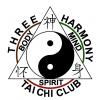-
Content count
822 -
Joined
-
Last visited
-
Days Won
5
About TzuJanLi
-
Rank
Dao Bum
Recent Profile Visitors
11,115 profile views
-
An old Zen proverb: A garden is never finished...
-
In the spaces, in the absence, there is potential and possibility.. The same absence fills many rooms, and intention resolves potential.. The same air fills many rooms, some vibrating with the sounds of love.. sounds of struggle, sounds of Life, sounds of silence.. Absence is the opportunity for intention to evolve.. That's not really a Haiku, but it could be if it was...
-
Bliss happens or it doesn't, for the seeker of clarity there is no concern about bliss.. with clarity the 'way' is clear, even in all its mystery the 'way' is clear..
-
Generally, we see through the lens of our own attachments and beliefs.. the still mind 'sees' what is, the active mind looks for what it believes..
-
It is my understanding that emotions are messages from the 'non-local' aspect of our wholeness.. unfortunately, many people struggle to discern emotions from thoughts 'about' emotions..
-
We bagan a Saturday workshop at 7:30am with Sifu handing us each 25 pound sand bags, with the instruction that we could not set them down. We could set them in our laps, but we had to keep them in our personal control all day, even during physical training that normally required both hands: we got creative. That afternoon, around 4:30, Sifu said okay, put the sandbags over there, and he just walked away. So there we were, 6 or seven of us yammering away trying to figure out what the lesson was, but each of us so very happy to have put the bags down, and the next days soreness reinforced the lesson we would soon learn. After about 20 minutes, Sifu came back and started a familiar Taiji form with no mention of the sandbags, so me playing my usual role as the crash-test-dummy asked the question: 'what was the sand bag thing about'?.. 'all we did was carry them all day'! so, and i'll paraphrase, Sifu said: What!, you didn't like carrying the sand bags?.. Did you realize you were carrying the bag, did it seem to get heavier?.. (heck yes it did, it felt like a hunderd pounds at the end of the day).. how did it feel when you set it down?, he asked.. i said: it was a real relief, it felt great to put the bag down, but all we did was carry them around and all they did was get in the way, and all you said was 'you'll see'.. so, he said: now you see, you see how easy it is to just let go of useless baggage and how heavy and burdensome it can be.. all day your balance was off, your efforts were exaggerated, and you complained.. the lesson is that it's much easier to let go of your mind's baggage than it is to hold on, but.. pay attention to what you are holding onto, and ask yourself why.. each of you have stuff to let go of.. It was one of his best lessons...
-

"The dangerous American myth of corporate spirituality"
TzuJanLi replied to ralis's topic in General Discussion
Pretending that there are no 'selfs' to absolve the pretender of the guilt of complicity, is the same absurdity as blaming the victim for the crime.. -
This is my understanding of the relationship of Consciousness with existence: There is the principle of self-organization, order emerging from chaos, recurrent patterns.. Source.. There is the capacity for recognizing those patterns and the differences between them, for memory and recall.. Consciousness There is the ability to organize information for a purpose.. Intelligence There is the ability to perceive, to feel, events, objects, thoughts, emotions, or sensory patterns, the vehicle through which experience and information and experience is made known to the experiencer/consciousness... Awareness..
-

"The dangerous American myth of corporate spirituality"
TzuJanLi replied to ralis's topic in General Discussion
Corporations, including the US Government Corp., use people's trust in the potential of Spiritual Awareness to create problems so they can make a profit selling cures.. stop buying the problems, and you won't have to by the cure (which is usually another problem).. -
I do know what is suffering.. i have endured great pain, and i have caused great pain.. Judging others based on your own beliefs seldom finds common ground for understanding.. Would you be so kind as to describe what you mean when you use the words 'suffering' and 'discipline', i am hoping to reply in a way that is consistent with your understanding..
-
Suffering is a self-referential value, assigned by the observer based on their beliefs about what is actually happening.. it's interesting to have a discussion with a Buddhist and when you explain that you're not suffering, they tell you are but you just don't realize it.. mostly, it's a misunderstanding of what is meant by the term 'suffering', there's the common meaning that most people use, 'enduring pain', and then the conceptual structured model used by Buddhists.. it is worth noting, that simply because i don't identify with someone's model does not equate to suffering on my part..
-
My understanding of Taoist intention, is clarity.. through which, resonant appropriateness, sometimes known as natural harmony, is revealed.. peace and contentment are by-products of clarity..
-
Authenticity...
-
Yep...
-
What's interesting is that Wang Ni knows enough about what he doesn't think he knows how to know, to think he knows not to know, and that's a bunch of thinking and knowing.. seems like it could be more plainly said, more simply..




